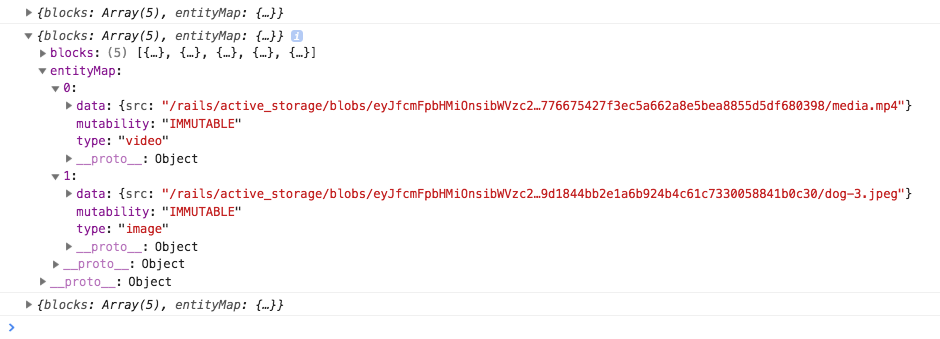From official docs I know about 2 methods: get entity by its key and get last created entity. In my case, I also need a method to access all entities from current ContentState. Is there any method that could perform this? If not, is there a one that can provide all entities keys?
const getEntities = (editorState, entityType = null) => {
const content = editorState.getCurrentContent();
const entities = [];
content.getBlocksAsArray().forEach((block) => {
let selectedEntity = null;
block.findEntityRanges(
(character) => {
if (character.getEntity() !== null) {
const entity = content.getEntity(character.getEntity());
if (!entityType || (entityType && entity.getType() === entityType)) {
selectedEntity = {
entityKey: character.getEntity(),
blockKey: block.getKey(),
entity: content.getEntity(character.getEntity()),
};
return true;
}
}
return false;
},
(start, end) => {
entities.push({...selectedEntity, start, end});
});
});
return entities;
};let selectedEntity is not the nicest piece of JS code ever, but it's as if the creators of Draft.js API wanted people to write horrible code... –
Zingale How I get the all entities keys:
const contentState = editorState.getCurrentContent()
const entityKeys = Object.keys(convertToRaw(contentState).entityMap)
result:
[0, 1]
then you can call the getEntity(key) method to get the responding entity.
this is how convertToRaw(contentState) looks:
Bao, You will find it inside key called 'blocks'.
convertToRaw(contentState).blocks.map(el=>el.text)Unfortunatelly your suggested way using convertToRaw doesnt work because it reindexes all keys to ["0", .., "n"], but the real keys differ when you act with the editor. New ones > n will be added and unused will be omitted.
const rawState = convertToRaw(contentState)
const { entityMap } = rawState;
This entityMap will have list of all entities. But this is an expensive conversion. Because, it will convert whole thing to raw. A better way is loop through blocks and check for entity.
You'll have to look at every character:
const { editorState } = this.state; // assumes you store `editorState` on `state`
const contentState = editorState.getCurrentContent();
let entities = [];
contentState.getBlockMap().forEach(block => { // could also use .map() instead
block.findEntityRanges(character => {
const charEntity = character.getEntity();
if (charEntity) { // could be `null`
const contentEntity = contentState.getEntity(charEntity);
entities.push(contentEntity);
}
});
});
Then you could access it via:
entities.forEach((entity, i) => {
if (entity.get('type') === 'ANNOTATION') {
const data = entity.get('data');
// do something
}
})
© 2022 - 2024 — McMap. All rights reserved.


editorStateshould fully represent the state of the editor. Maintaining a separate set of entities goes against the "single source of truth" principle. – Zingale